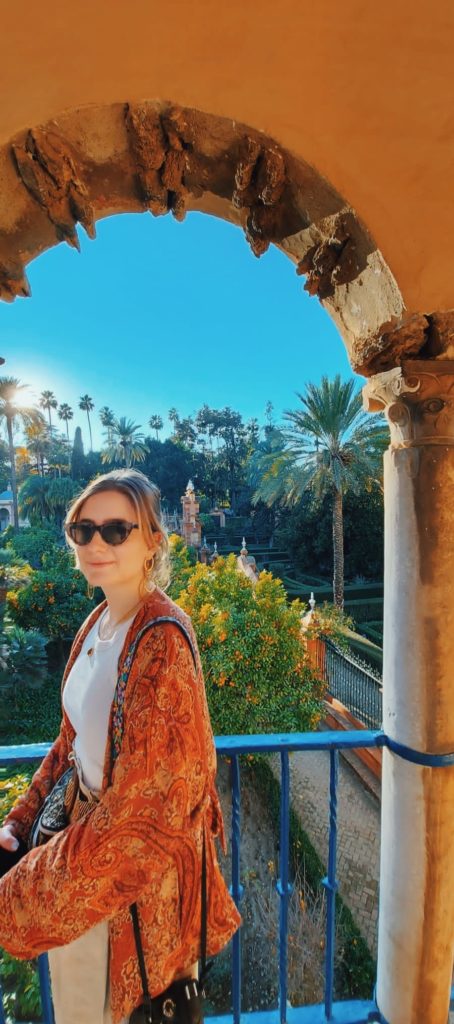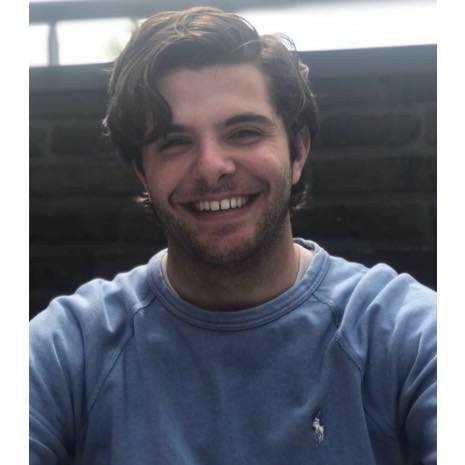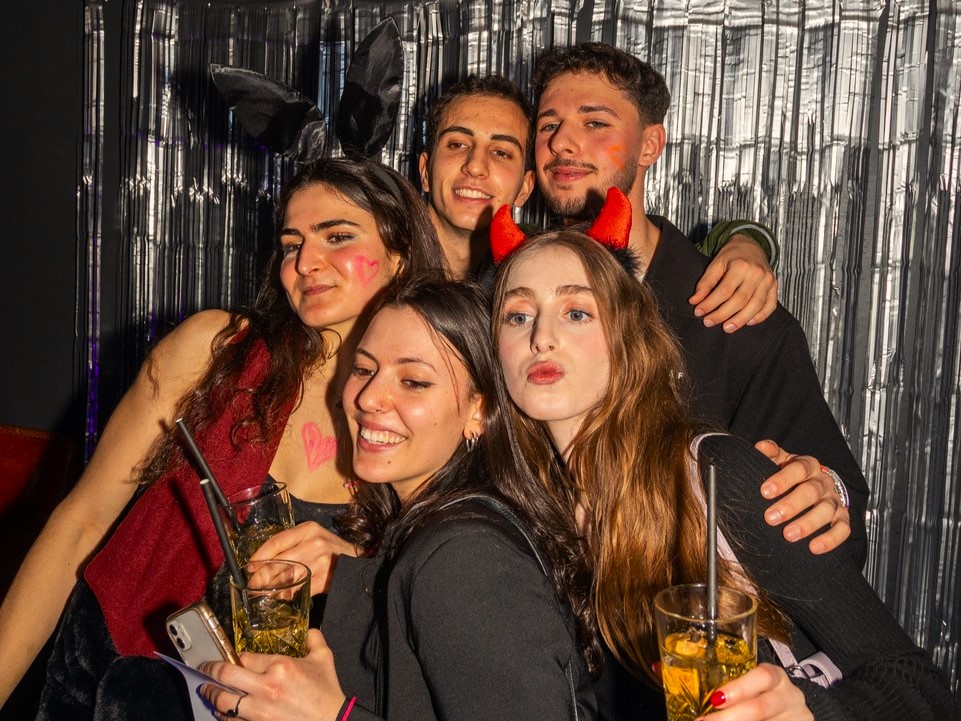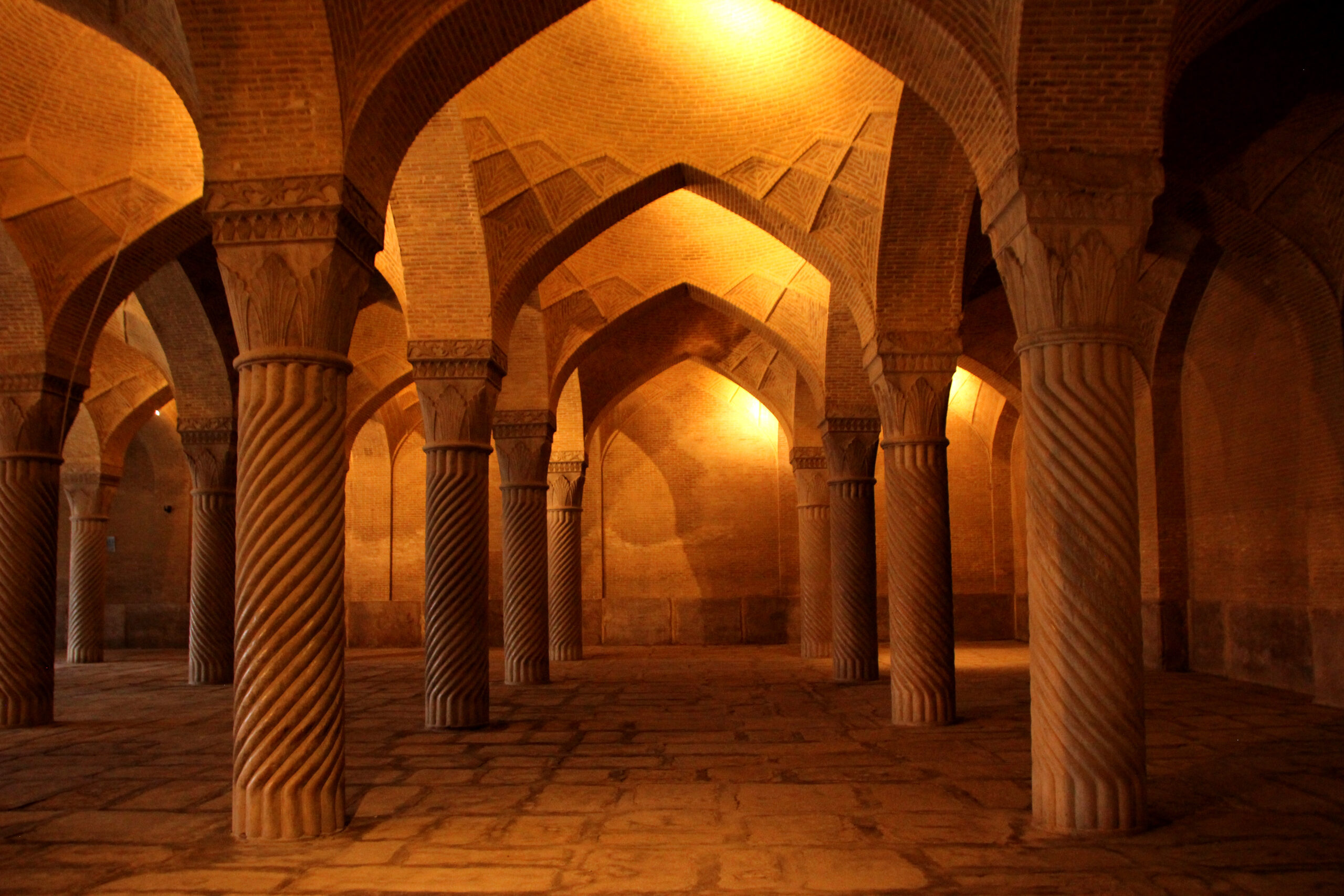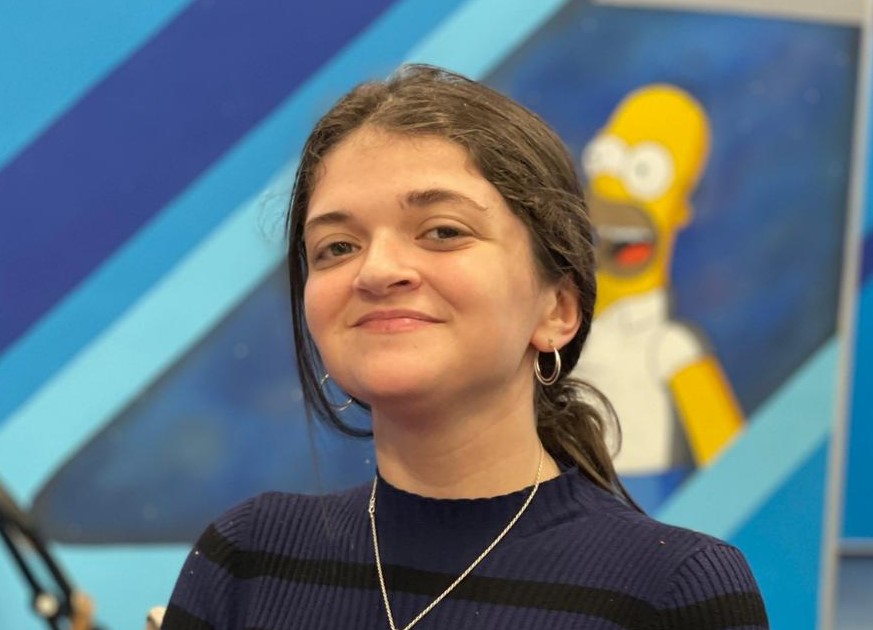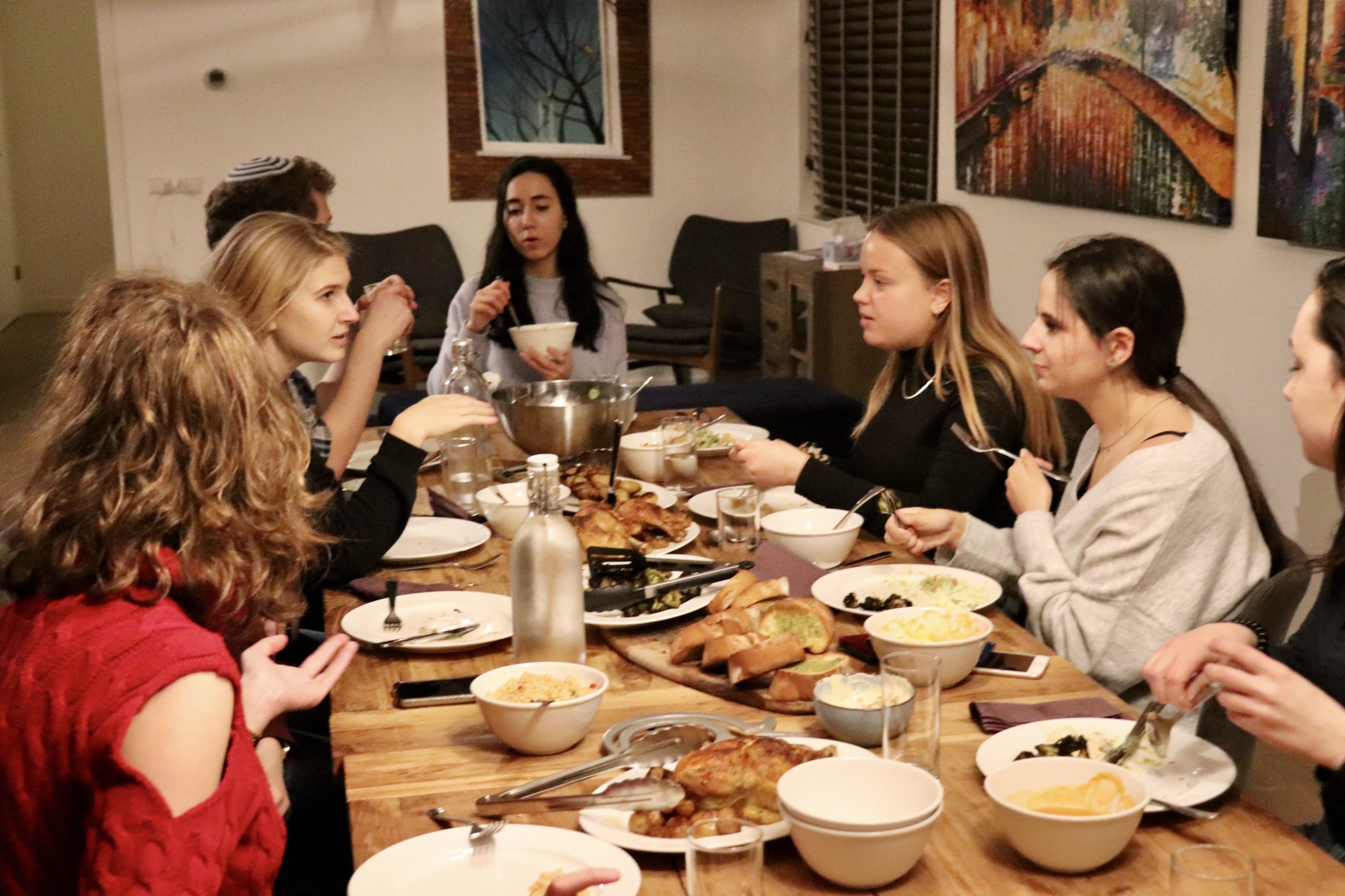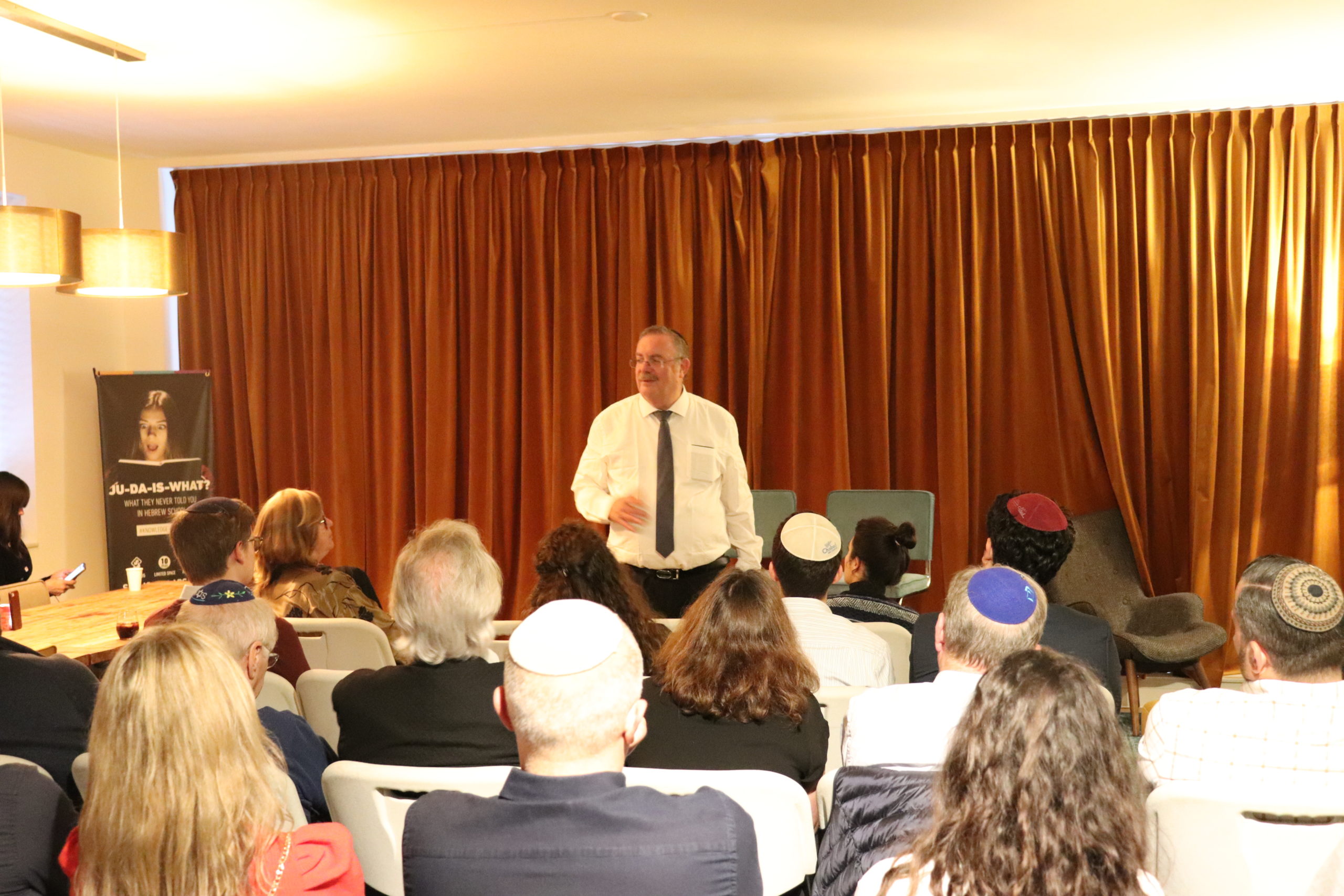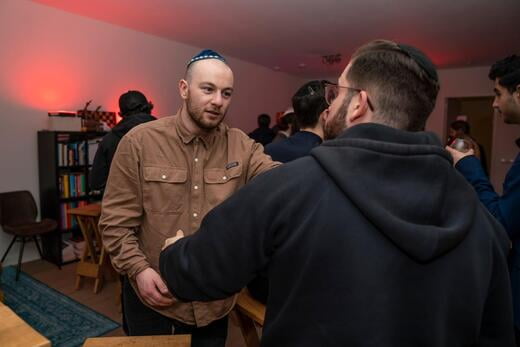Naomi Hammelburg (25) was born in Israel and lived in the Netherlands from the age of three until the age of fifteen, after which she moved back to Israel. In Israel, she finished high school, served in the Israeli army, and completed her Bachelor’s degree in Government, Diplomacy, and Strategy at Reichman University. Now she returned to the Netherlands and is almost done with her Master Crisis and Security Management in Leiden!
How was it to grow up in Doorwerth (a small village in the east of The Netherlands) as a Jewish girl?
There wasn’t really a Jewish community life in Doorwerth. We either went to Arnhem or Nijmegen with my family, but usually to Nijmegen. As a child, I went to Jewish lessons every Sunday and I also met one of my current best friends there!
When I think back to my youth, I think above all of the fun while celebrating the Jewish holidays. It was always very exciting in the shul, where everyone came together, everyone knew each other and there was delicious food! I loved going there for the holidays.
The rest of our Jewish life actually took place in Doorwerth. We eat kosher at home and we used to invite people over for Shabbat dinners and other holidays. However, in my opinion, it is mainly traditional at our home, a kind of cultural Judaism. For me, maybe even more than for my mother, my Jewishness – my Jewish identity -, is strongly connected to Zionism.
So, Zionism plays an important role for you. You eventually chose to go to Israel when you were fifteen, why?
As a family, we went on holiday to Israel every year and it really felt like home to me. At one point, I was thinking of going to Israel, and actually, I wanted to when I was thirteen, but my mother thought that was too young. Eventually, at the age of fifteen, I went to a boarding school and stayed in Israel for eight years!
In the end, I returned to The Netherlands for my studies. Because I think that when you choose the same field of study for your Master’s degree as for your Bachelor’s degree, you quickly end up repeating the material. But I wanted to see new thoughts, opinions and perspectives! At first, I hesitated between Leiden and Glasgow, but in the end I ended up back in the Netherlands.
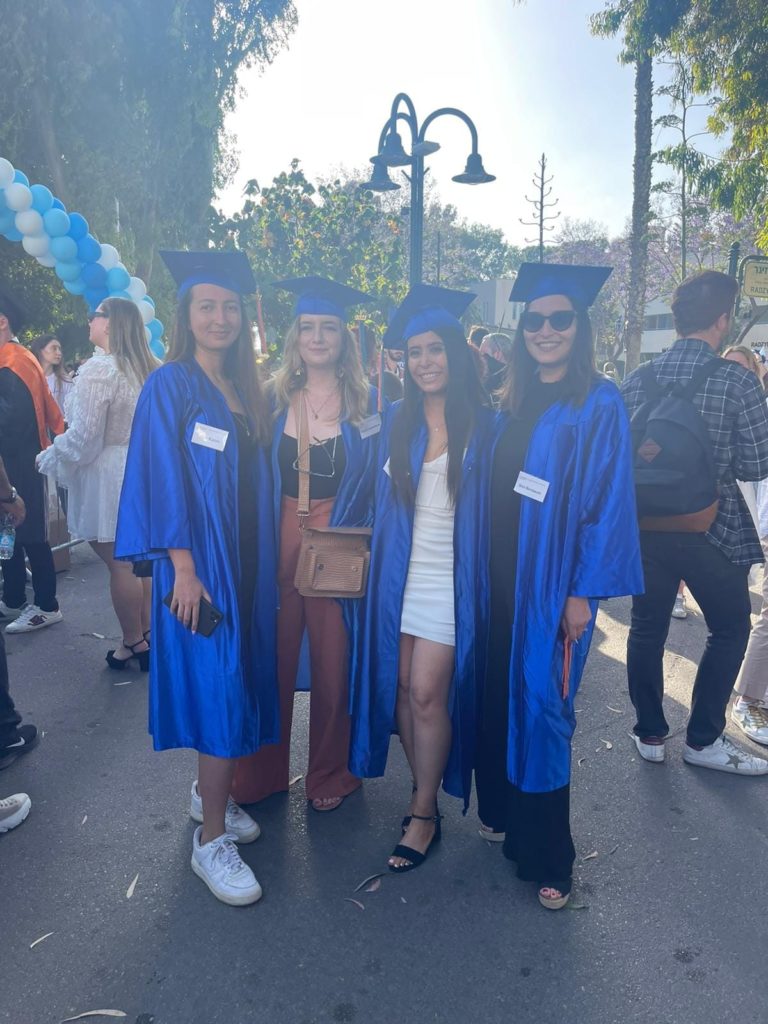
You mentioned that you value the fun of celebrating holidays, what was it like to return to the Netherlands from that super Jewish environment in Israel?
That really took some getting used to. I truly miss celebrating the holidays with my friends. Here, you have a handful of people with whom you can celebrate and with your other (non-Jewish) friends you have to do other things. When I lived in Israel, we often celebrated the holidays together and I also really enjoyed getting everyone together for a Shabbat dinner, for example. There, it was a kind of communal tradition that you have, really a cultural thing, and I thought that was fantastic. So it’s very strange to have much less of that now here in the Netherlands.
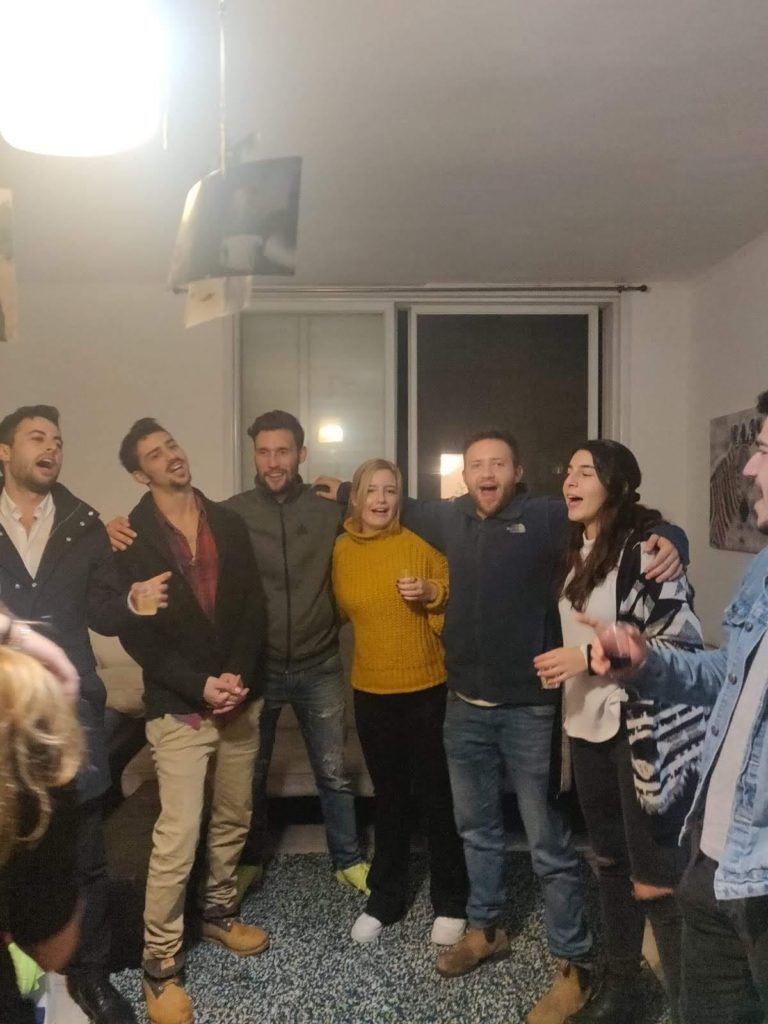
It sounds like you had a great time in Israel and you miss it very much. How do you see your future? Do you see yourself living and working in Israel later on?
No, I made a very conscious decision to return to the Netherlands. Life in Israel is not always easy and also carries with it a lot of worries, the constant security issues, for example. I also have my family here in the Netherlands and I came back here to study. So I have taken the decision to build a life in the Netherlands again. Preferably in the area of Doorwerth, because I love the nature surrounding it.
There aren’t many Jews in Doorwerth. Does it play a role for you that you live in an environment, like the one you had in Israel, where you have a vibrant Jewish community life?
Not necessarily. Not that I don’t want an active Jewish community life, but for me, the most important concern is that I can be openly Jewish. I know, for example, that it is more difficult to be openly Jewish in the Randstad, despite the fact that more Jews live there. In Doorwerth, everyone knows that we are Jewish and we can invite everyone for holidays and other traditions without being looked at strangely. So it would be a plus if there was a Jewish community, but it wouldn’t change my decision. As long as I can be openly Jewish, that is my identity and nobody should interfere with that.
“As long as I can be openly Jewish, that is my identity and nobody should interfere with that.”
I also believe it is important, because there are so few Jews in Europe, to actually pass on to everyone what Judaism is and who we are. Many people have an opinion about Jews or Israel without ever having met a Jew or without having visited Israel.
I would like to have a positive influence on people and I see it as my duty to contribute to a better world by introducing people to who I am. For example, by letting them participate in a Shabbat dinner or by taking my friends to Israel.
When you return to the Doorwerth area, will you be able to work there within your field of expertise, focusing on security issues?
I hope so! I would like to work for the military later on and hopefully that will be possible at one of the barracks near Doorwerth.
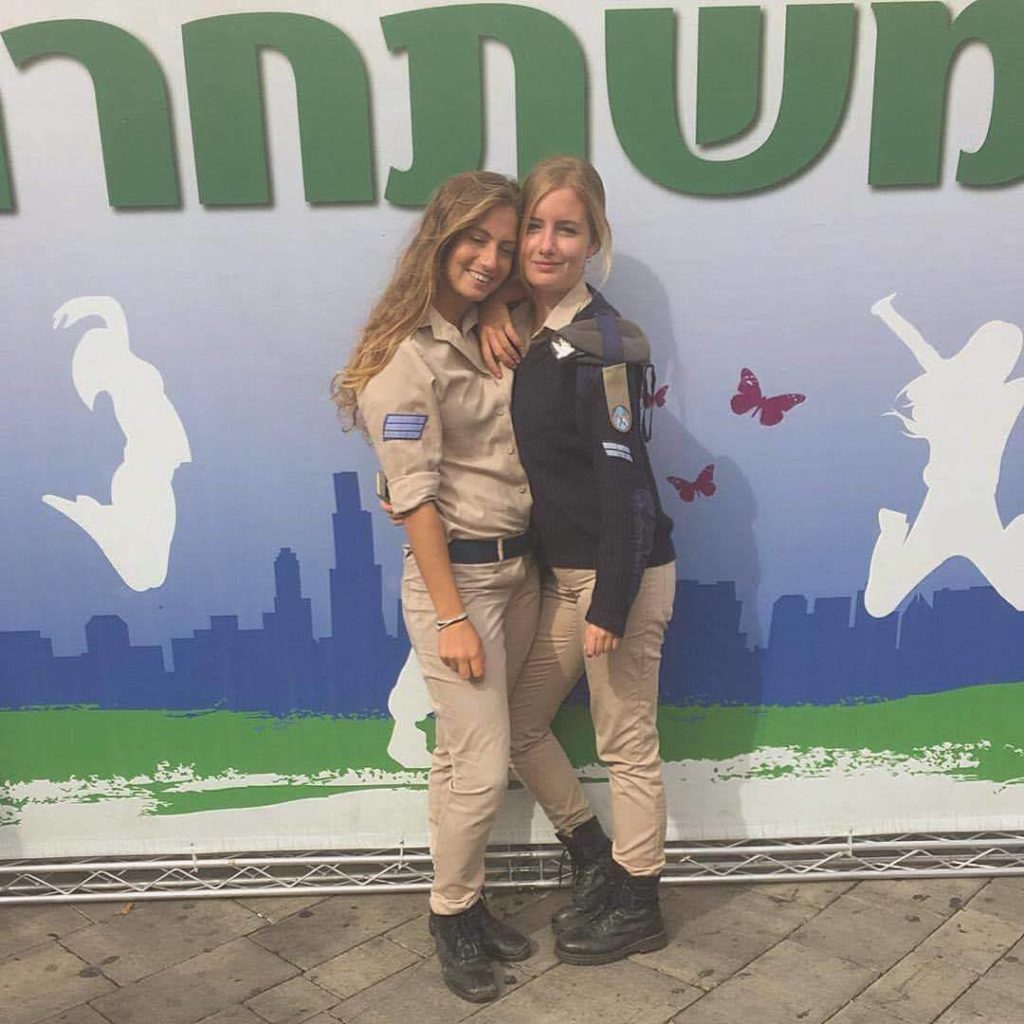
Why do you want to join the military? Does this interest tie in with your role in the Israeli army, or is there some other reason you are interested in security?
Actually, my time in the army has nothing to do with what I studied. It is mainly the values you need in the army that attract me and that I understand. While the world is becoming more and more individualistic, in the army you have to think very hard about what is important for society. Actually, in the army, you place society above your own interests. I believe that especially that value is very important and it is the reason why I joined the army.
What role does society play for you and your choice for the military?
I would like to make society secure and create a better world. That’s actually why I’m obsessed with security: in my eyes, it makes the world a better place. Because, how else can you be free without having security? These issues keep me busy. Also with the growing anti-Semitism and the increasing aggression in society towards everyone. For example, towards the media or just anyone who expresses a different opinion.
“Because, how else can you be free without having security?”
I think there should be something that needs to change society, like security. How do you make people freer or more democratic? In my opinion, you do that by creating security. Unfortunately, I don’t think everyone is as concerned about that as I am.
Indeed, I believe that in the Netherlands people are less concerned about this than in Israel. How would you explain the difference in mindset?
In the Netherlands, you have a very individualistic mindset, I think. You see that, especially, in the ‘bystander syndrome’. A good example is the girl who was recently assaulted for forty minutes on a train. Everyone standing around was shocked, but there was no real intervention. I can hardly imagine that this would happen in Israel. Everyone in Israel has been in the army and they know that if you don’t help each other, you won’t make it. But you also see this ‘Israeli’ mentality in the military here. In their advertisements, for example, they are very focused on helping each other.
Moreover, I also believe that Jewish values are an important part of this. For example Tikkun Olam: you want to improve the world, help each other. And mitzvot exist for a reason! If you look at when the problems in Ukraine started, you also saw that Jews try to help each other as much as possible. In my opinion, it is very much a core of Jewish values to support each other.

Do you want to learn more about members of the Chabad on Campus community? Have a look at our other Spotlights!

